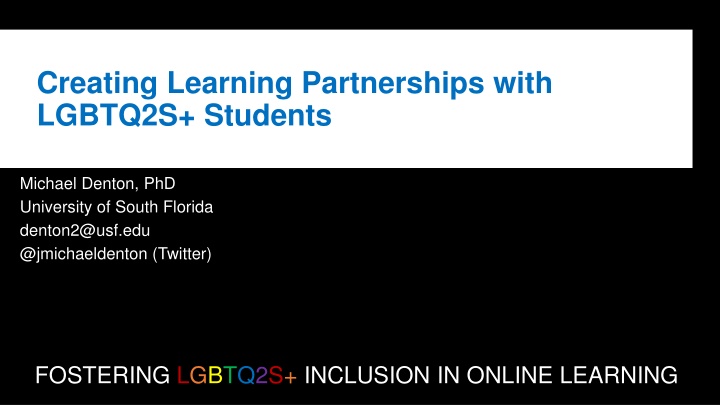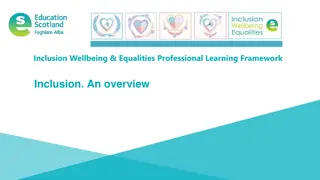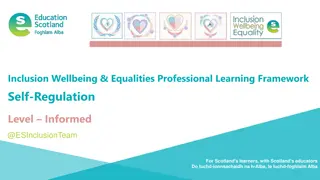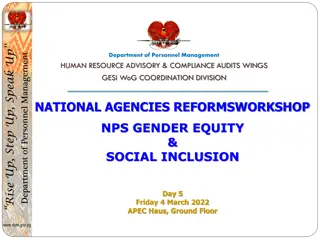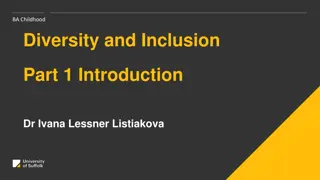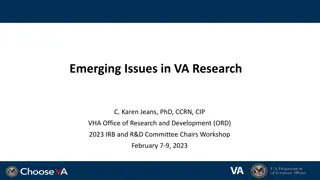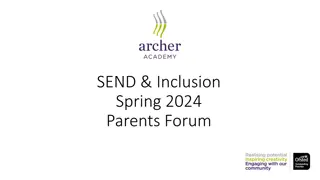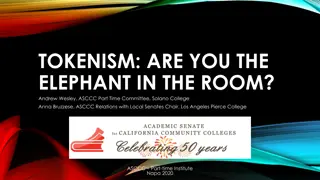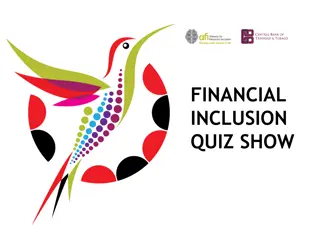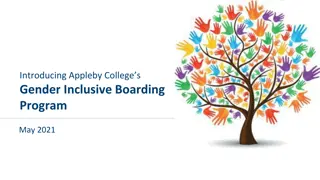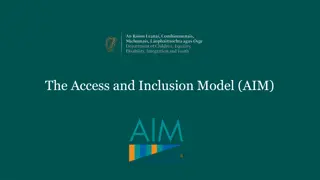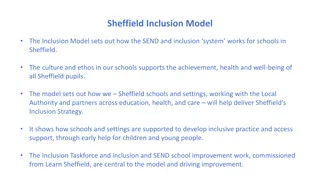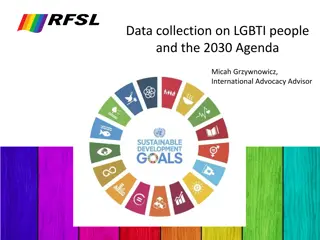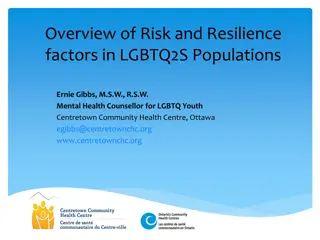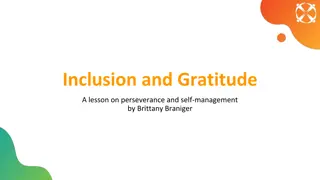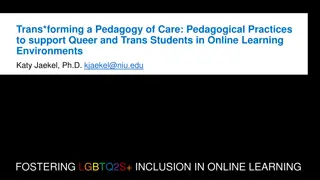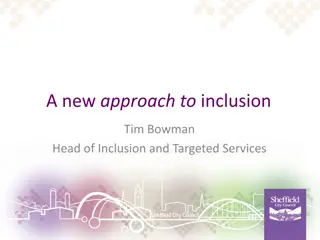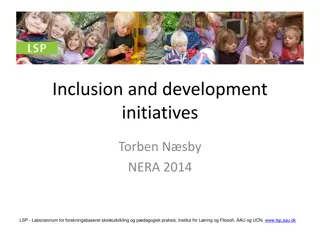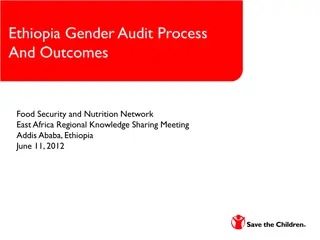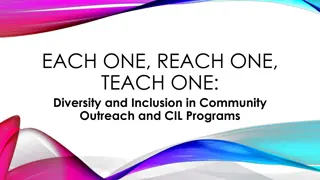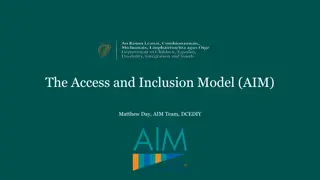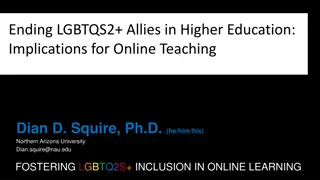Fostering LGBTQ2S+ Inclusion in Online Learning
This content explores creating learning partnerships with LGBTQ2S+ students in online education, focusing on key positions in self-authorship, a learning partnership model, and three key practices for effective learning partnerships. References to theories and models of practice for self-authorship education are provided to guide educators in promoting LGBTQ2S+ inclusion in online learning environments.
Download Presentation

Please find below an Image/Link to download the presentation.
The content on the website is provided AS IS for your information and personal use only. It may not be sold, licensed, or shared on other websites without obtaining consent from the author.If you encounter any issues during the download, it is possible that the publisher has removed the file from their server.
You are allowed to download the files provided on this website for personal or commercial use, subject to the condition that they are used lawfully. All files are the property of their respective owners.
The content on the website is provided AS IS for your information and personal use only. It may not be sold, licensed, or shared on other websites without obtaining consent from the author.
E N D
Presentation Transcript
Creating Learning Partnerships with LGBTQ2S+ Students Michael Denton, PhD University of South Florida denton2@usf.edu @jmichaeldenton (Twitter) FOSTERING LGBTQ2S+ INCLUSION IN ONLINE LEARNING
Key Positions in Self-Authorship External Foundations Trust authorities and others visions only Crossroads Torn between the voice of self and others Internal Foundations (self-authorship) Trusting self to decide what to believe; follow own vision for success
Learning Partnership Model: Three Key Assumptions Knowledge is complex and socially constructed Self is central to knowledge construction Authority & expertise were shared in mutual construction of knowledge
Learning Partnerships Model: Three Key Practices Validate learners capacity to know Situate learning in learners experience Mutually construct meaning
References Baxter Magolda, M. B. (2004). Learning partnerships: Theory and models of practice to educate for self-authorship. Stylus. Baxter Magolda, M. B. (2009). Authoring your life: Developing an internal voice to navigate life s challenges. Stylus.
